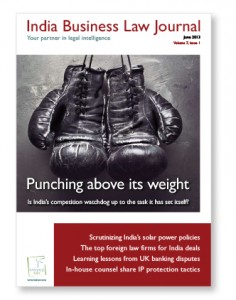These have been tough times for cricket lovers across India
Arecent spot-fixing scandal that revealed the seamier side of the glitzy Indian Premier League has left many fans questioning the wisdom of their long-standing loyalty to the game. Even after the Indian team emerged triumphant at the ICC Champions Trophy in early June, the struggles to keep the faith continue on account of the turmoil within the body that oversees Indian cricket, the Board of Control for Cricket in India.
 While this is bad news for Indian cricket, the scepticism it has triggered may also cast a shadow on other bodies that regulate sectors of the Indian economy. For, if the powers-that-be lack the necessary vision and integrity to ensure the well-being of a sport, can they be trusted to regulate critical sectors of the economy in a manner that secures the common good?
While this is bad news for Indian cricket, the scepticism it has triggered may also cast a shadow on other bodies that regulate sectors of the Indian economy. For, if the powers-that-be lack the necessary vision and integrity to ensure the well-being of a sport, can they be trusted to regulate critical sectors of the economy in a manner that secures the common good?
The confidence inspired by a regulator is critical for the well-being of the sector that it oversees. Writing in this month’s Vantage point, DG Shah, the secretary general of the Indian Pharmaceutical Alliance, argues that regulatory inadequacies are holding back India’s drugs industry. Shah expresses serious concerns over the effectiveness of India’s drugs regulator, the Central Drugs Standard Control Organization, and argues that the regulator’s shortcomings are damaging the international credibility of the country’s pharmaceutical industry.
Shah may have been heartened when India’s finance minister, P Chidambaram, recently spoke of the need for a regulator that “favours none and spares none”. The minister was delivering a lecture organized by India’s antitrust watchdog, the Competition Commission of India (CCI). But is this a regulator that is up to task?
In our Cover story this month, we look back at the CCI’s short history and ask whether it is capable of rising to the considerable challenges it has set for itself. The CCI has been fully functional for just two years, but it has already been flexing its muscles. It has imposed widely publicized penalties of previously unheard-of amounts and some observers have expressed concerns over the manner in which it has gone about prosecuting cases of anti-competitive behaviour.
Samir Gandhi, a partner at AZB & Partners who heads the firm’s competition law practice, believes the CCI “may be missing the wood for the trees” in its hurry to send out a powerful message. However, others suggest that the CCI is yet to develop the necessary rigour to be an effective regulator. This may well prove to be the CCI’s Achilles heel and will need to be overcome if the regulator is to make any headway in levelling the playing field, and in doing so, earning people’s trust.
As every in-house lawyer will know, maintaining the reputation of a company is often linked to protecting its intellectual property. While this is a particular challenge in India, the fact remains that the country is an immensely attractive market for many global IP owners. In Looking in-house for IP insights we turn to in-house counsel at the Indian operations of DuPont and JCB for their perspectives on the problem. Their insights are incisive and will be of great interest to other in-house counsel in India and beyond. After all, nothing can beat local knowledge for getting a handle on what is a very Indian problem.
Knowledge of a more distant kind comes into focus in this month’s What’s the deal?. Here we examine the implications for Indian investors and financial institutions of banking-related judgments by UK courts. The UK is a major hub for the resolution of banking and derivatives disputes, and as such, many of the judgments issued there – and the precedents they set – are directly relevant to India.
Our coverage includes analysis of recent cases involving the London Interbank Offered Rate (LIBOR) scandal, which will have far-reaching consequences around the world.
Closer to home, an acute shortage of power has long been one of the greatest challenges to India’s development. As steps are taken to tackle the problem, renewable energy technologies, including solar power, have risen to prominence. In Sunny solutions we consider the burning issues facing investors in the sector. While the Electricity Act, 2003, remains the significant legislation regulating the generation, transmission and distribution of electricity, investors must also grapple with numerous different state laws and policies. Our coverage compares some of the key state solar power policies and sheds much light on the how investors may pursue opportunities in the sector.
This month’s Intelligence report presents India Business Law Journal’s seventh annual survey of the top international law firms for India-related work. Our coverage reveals the top 10 foreign firms for India-related work, as well as 10 key players and 20 significant players. We also highlight 25 regional and specialist law firms, and 35 “firms to watch”, that we believe in-house counsel should keep well within their sights.
This issue of India Business Law Journal marks the start of our seventh year of publication. Since our first issue in June 2007, we have strived to make sense of complex transactions and regulations, to bring clarity to areas of confusion or ambiguity, and to foster intelligent debate on significant issues. As we mark this important anniversary, we would like to thank our readers, our contributors, our advertisers, our correspondent law firms and our editorial board members. We look forward to continuing to serve you in the years ahead.






















